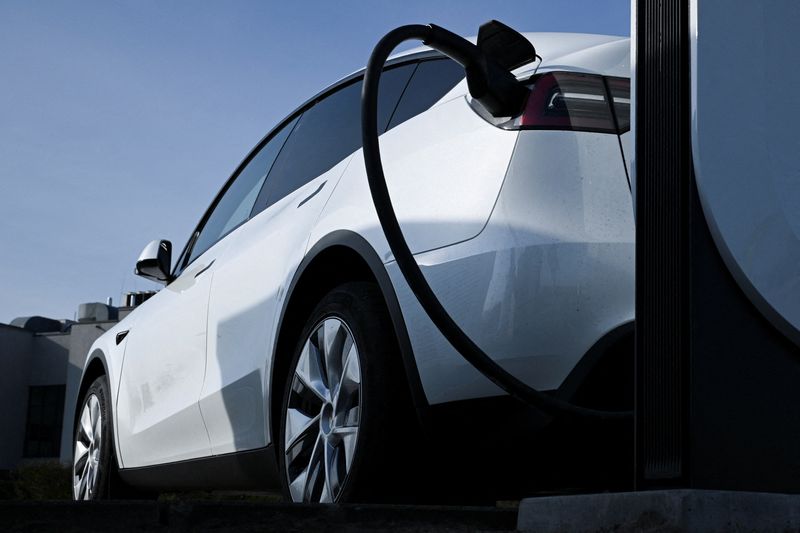Investing.com — In a Tuesday message to clients: Deutsche Bank (ETR:) Analysts shared their top five takeaways from their recent expert call with Curtis Dubay, chief economist at the U.S. Chamber of Commerce, where they discussed the impact of Trump 2.0 on the auto industry.
1The discussion revealed that significant changes to electric vehicle (EV) tax credits are unlikely before the end of 2025 due to the legislative process required for policy changes.
The expert call emphasized that any changes President-elect Trump might want to make would require review and approval by Congress, a process that could not be circumvented even by the Department of Government Efficiency (DOGE).
2This clarification comes amid recent headlines suggesting an immediate elimination of EV tax credits, which “may not be representative of the Trump administration’s top priorities,” according to the Deutsche Bank note.
3Additionally, the analysis suggested that the Trump administration may not immediately prioritize the elimination of EV tax credits. Instead, the topic is expected to surface during bipartisan negotiations on tax reform, especially with the Tax Cuts and Jobs Act (TCJA) set to expire in 2025.
4) Also, the DOGE’s ability to act as “CEO” of the government is limited by legal and procedural constraints. “Two years probably won’t be enough time to make major changes, but what can be investigated is likely to do with waste, fraud and misuse of spending,” analysts said.
5) Finally, the conversation turned to rates. While imposing a blanket tariff on all imported goods would require a national security justification, which could be difficult to substantiate, it was recognized that the possibility of reimposing tariffs against China and Mexico would be more likely to be considered.
President-elect Trump announced last week that he would impose significant tariffs on the United States’ three largest trading partners – Canada, Mexico and China – in an effort to fulfill campaign promises that could risk sparking trade conflicts.
Trump, who would take office on January 20, proposed a 25% tariff on goods from Canada and Mexico, tying the measure to efforts to curb drug trafficking, especially fentanyl, and the number of migrants at the border to reduce. This approach appears to call into question the terms of an existing free trade agreement.
Regarding China, Trump unveiled plans for an “additional 10% tariff, above any additional tariffs,” although the implications remain unclear.
He has previously vowed to revoke China’s most favored nation trading status and impose tariffs of more than 60% on Chinese imports, a level far higher than during his first presidency.


